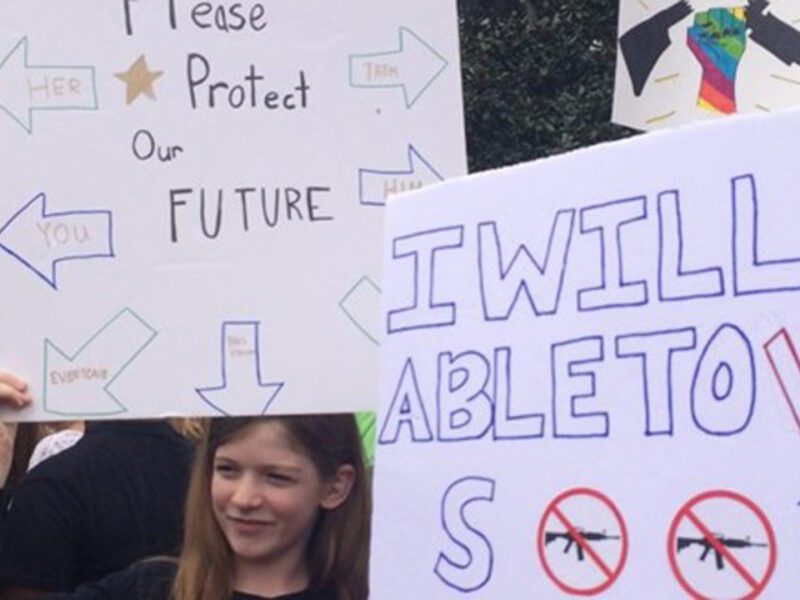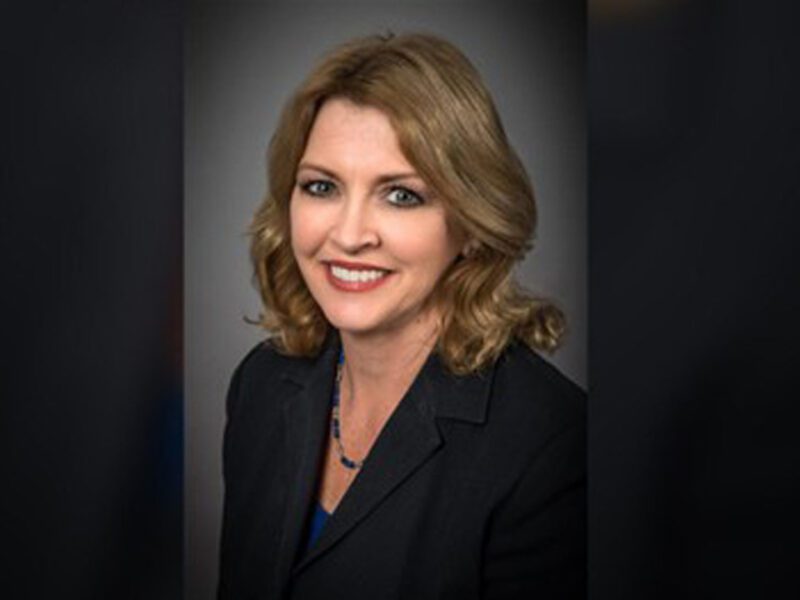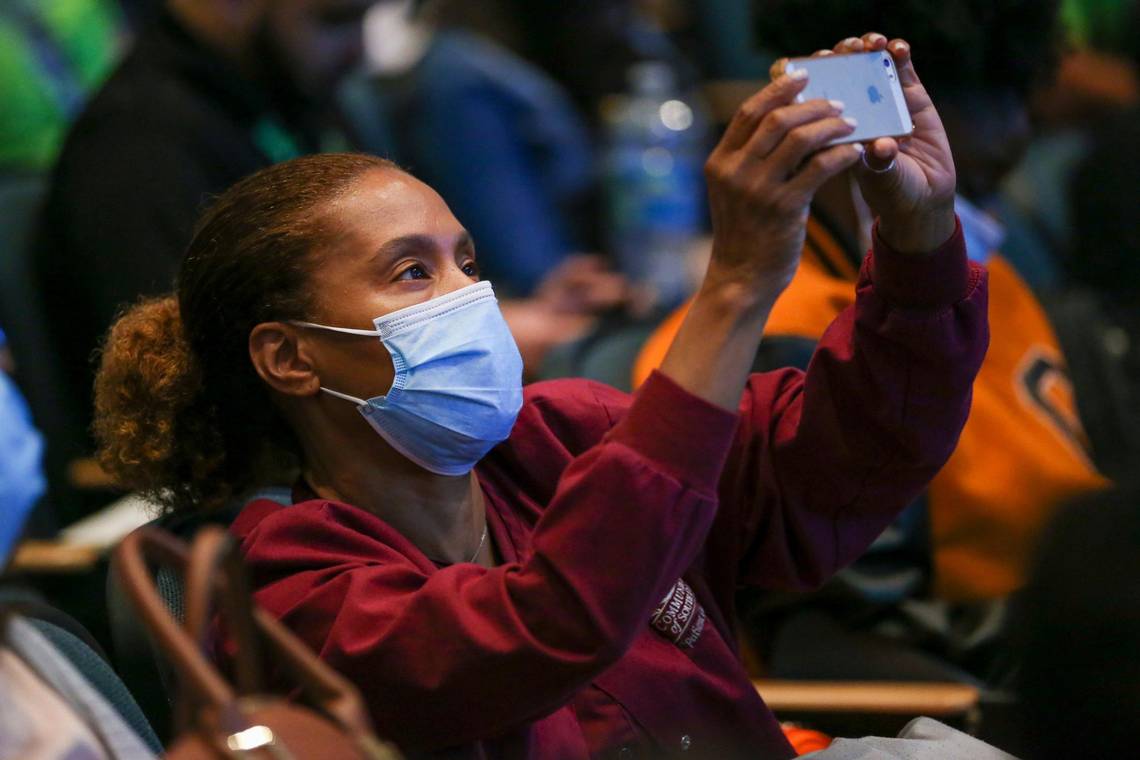
What’s on the minds of school nurses? Let’s start with mental health and gun violence
Miami Herald | By Grethel Aguila | August 4, 2022
Shirley Plantin paced around an auditorium with a microphone in hand. A screen with pictures of children floated behind her.
Some were kids, others were teens. Some smiled, others frowned. Some were in black and white, others in color.
But all were of young lives lost.
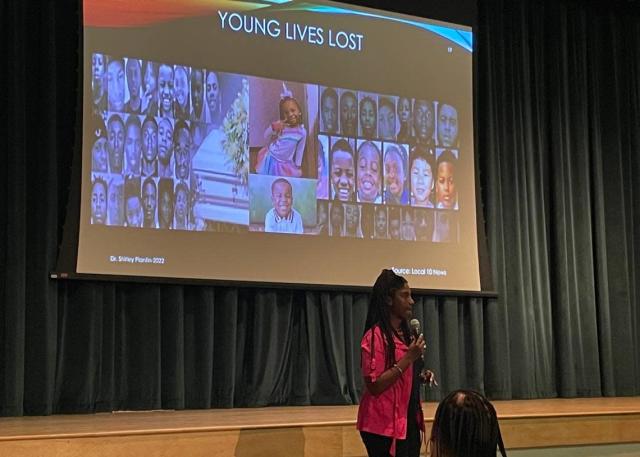
“I want you to understand that these are not faces from Wisconsin,” Plantin said. “They’re not from Massachusetts. They’re not even from Orlando. They’re not from Broward County.
“These are faces of babies right here in Miami-Dade.”
Hundreds of school-based health workers attended a professional development conference hosted by the Children’s Trust at Ronald W. Reagan Doral High School on Wednesday morning. The three-day conference, which will run remotely on Thursday and Friday, will focus on mental health, gun violence prevention and school health.
GETTING NURSES, MENTAL HEALTH PROFESSIONALS INTO SCHOOLS
This is the first time since 2019 that the annual school health professional conference is back in person, Children’s Trust CEO James Haj said. The sessions are a refresher for the professionals and an opportunity to network, foster relationships and explore resources.
The Children’s Trust funds 146 clinics inside 141 high-need Miami-Dade schools, Haj said. The clinics, which are run through partnerships with hospitals like Nicklaus Children’s, are open during school hours for all school-aged children. Students can go in for medical treatment as well as their social, emotional and mental well-being needs.
“If they get sick or there’s a need, they come down to the clinic to get all the services they need,” he said. “Their parents do not have to come pick them up. They can get back to class and keep up with the instructional time.”
The conference offers expert guidance and provides feedback for school health staff, said Eduardo Barrios, a nurse who services three Miami-Dade elementary schools for Nicklaus, the children’s hospital near South Miami. The information presented is relevant to Barrios’ work providing care for underprivileged children. School nurses can notice issues even before a child’s family.
“So anything from dental care to needing a cast or to getting eyeglasses,” Barrios said. “It makes a huge impact on [student] academic achievements.”
This training and collaboration allow school health professionals to see the human holistically, said Lissette Collazo-Maza, a social worker who provides mental health services to 13 schools. Children from migrant families can rely on these services because many don’t have insurance.
“They don’t have to go anywhere,” she said. “We are there. They can be at school and, at the same time, get taken care of physically and also mentally.”
PREVENTING GUN VIOLENCE IN MIAMI-DADE
Miami loses a classroom of students a year, about 30 students, to gun violence, said Plantin, chief executive consultant for U-Turn Youth Consulting Firm. But school nurses, mental health professionals and educators can help change that.
Shooters are becoming younger, she said. And the COVID-19 pandemic exacerbated gun violence.
“We’re screaming and yelling about the Uvalde shooting,” she said. “But we’re losing them every day. . . Uvalde matters, but the community shootings that happen every day, they matter, too.”
Youth violence, she said, is a public health problem. Children are out on the streets, making more money than their parents do legally. And money often causes gun violence.
Plantin has had children come up to her and share their outlook on life. Many tell her they don’t have the luxury of living; they’re just trying to survive.
“You’re dealing with a generation of young people who don’t love life and don’t fear death,” she said.
She urged the professionals to challenge their biases. Kids from poorer areas aren’t the only ones who commit crimes. Affluent kids do it too, but they have the legal resources to get out of trouble that many Black and brown kids don’t have. Some people also justify gun violence by saying people who get shot are doing bad stuff. But what bad things were the 6-year-old kids shown on the screen doing?
PROTECTING THE KIDS AT SCHOOL
Every school in Miami-Dade has a fully trained, sworn police officer, said Maj. Joseph Bevilacqua of the Miami-Dade Schools Police Department.
“Miami-Dade County Public Schools is safer today than it has ever been before,” Bevilacqua said.
School police have taken measures to prevent mass casualty incidents since before Parkland and Uvalde, he said. Some measures include:
- Single points of entry
- Random metal detection
- Locked classroom doors
- Random firearm and narcotic sweeps
- Threat assessment teams
- Active shooter lockdown drills
- Training police in active shooter response
- Collaborating with school mental health professionals
All school cameras and GPS-tracked buses are monitored from command centers, Bevilacqua said. Police also scour social media and investigate all threats made. The threats are traced down before school starts the next morning.
Officers are trained to report to an active shooter situation — even if they’re by themselves. Bevilacqua pointed toward a school resource officer in the back of the room.
“He’s going to identify the threat, even before the guy puts the gun down,” he said.
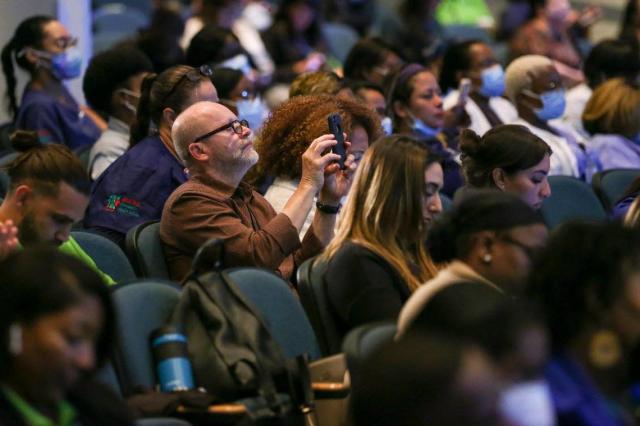
More needs to be done to address gun violence, Plantin said. Miami-Dade is ahead of other counties but schools need to make mental health a priority. School health professionals need to connect with children, empathize without condoning, relate to them and serve expecting nothing in return.
“When we don’t do it, the guns will do it,” she said. “Because the streets will happily accept them.”



